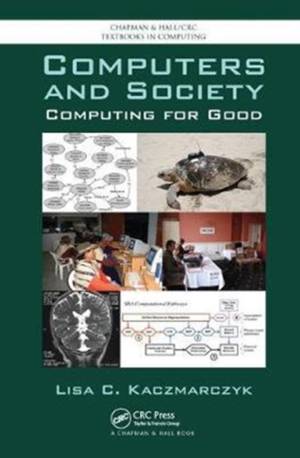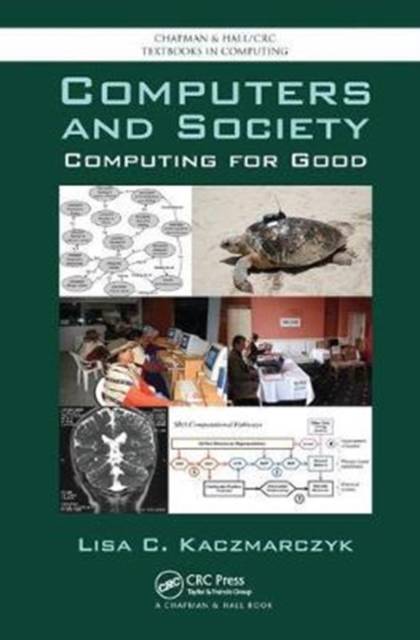
- Retrait gratuit dans votre magasin Club
- 7.000.000 titres dans notre catalogue
- Payer en toute sécurité
- Toujours un magasin près de chez vous
- Retrait gratuit dans votre magasin Club
- 7.000.0000 titres dans notre catalogue
- Payer en toute sécurité
- Toujours un magasin près de chez vous
Description
Since computer scientists make decisions every day that have societal context and influence, an understanding of society and computing together should be integrated into computer science education. Showing students what they can do with their computing degree, Computers and Society: Computing for Good uses concrete examples and case studies to highlight the positive work of real computing professionals and organizations from around the world.
Each chapter profiles a corporation, nonprofit organization, or entrepreneur involved in computing-centric activities that clearly benefit society or the environment, including cultural adaptation in a developing country, cutting-edge medicine and healthcare, educational innovation, endangered species work, and help for overseas voters. The coverage of computing topics spans from social networking to high-performance computing. The diversity of people and activities in these profiles gives students a broad vision of what they can accomplish after graduation.
Pedagogical FeaturesEncouraging students to engage actively and critically with the material, the book offers a wealth of pedagogical sections at the end of each chapter. Questions of varying difficulty ask students to apply the material to themselves or their surroundings and to think critically about the material from the perspective of a future computing professional. The text also gives instructors the option to incorporate individual projects, team projects, short projects, and semester-long projects. Other resources for instructors and students are available at www.computers-and-society.com
Visit the author's blog at http: //computing4society.blogspot.com
Spécifications
Parties prenantes
- Auteur(s) :
- Editeur:
Contenu
- Nombre de pages :
- 316
- Langue:
- Anglais
- Collection :
Caractéristiques
- EAN:
- 9781138432901
- Date de parution :
- 27-07-17
- Format:
- Livre relié
- Format numérique:
- Genaaid
- Dimensions :
- 156 mm x 234 mm
- Poids :
- 616 g

Les avis
Nous publions uniquement les avis qui respectent les conditions requises. Consultez nos conditions pour les avis.






